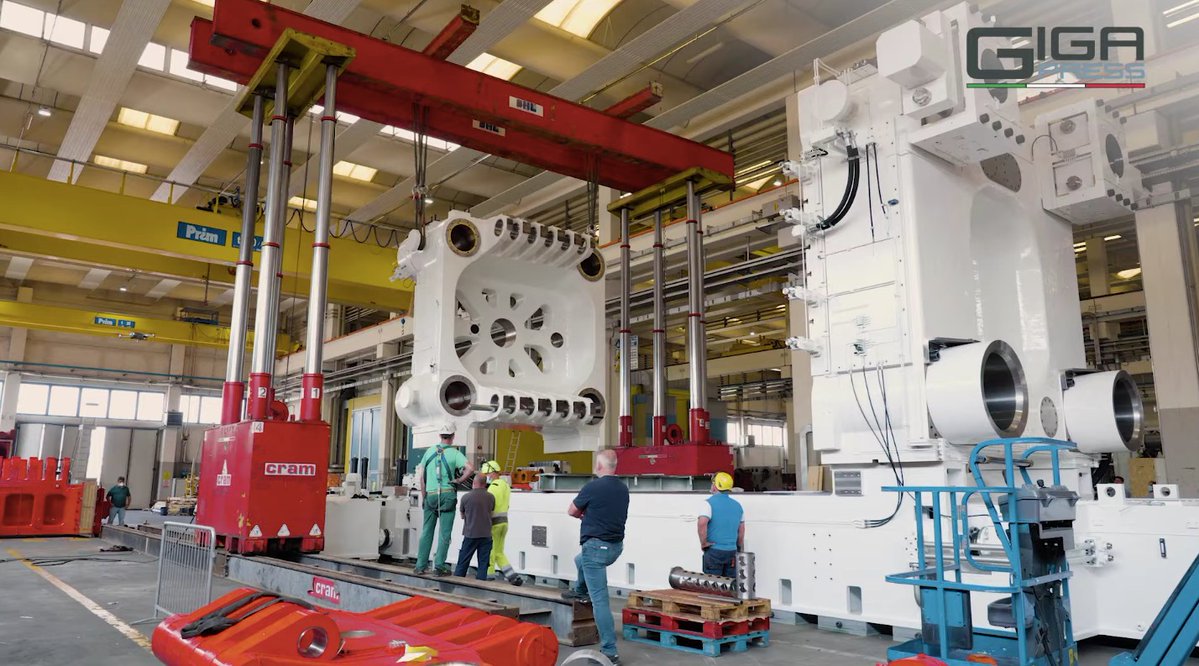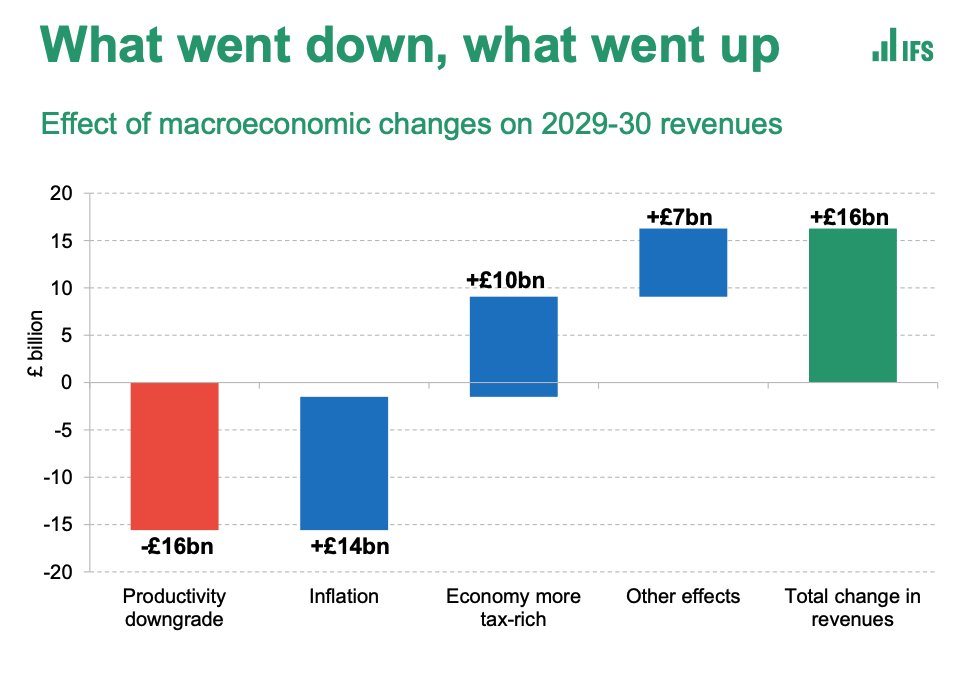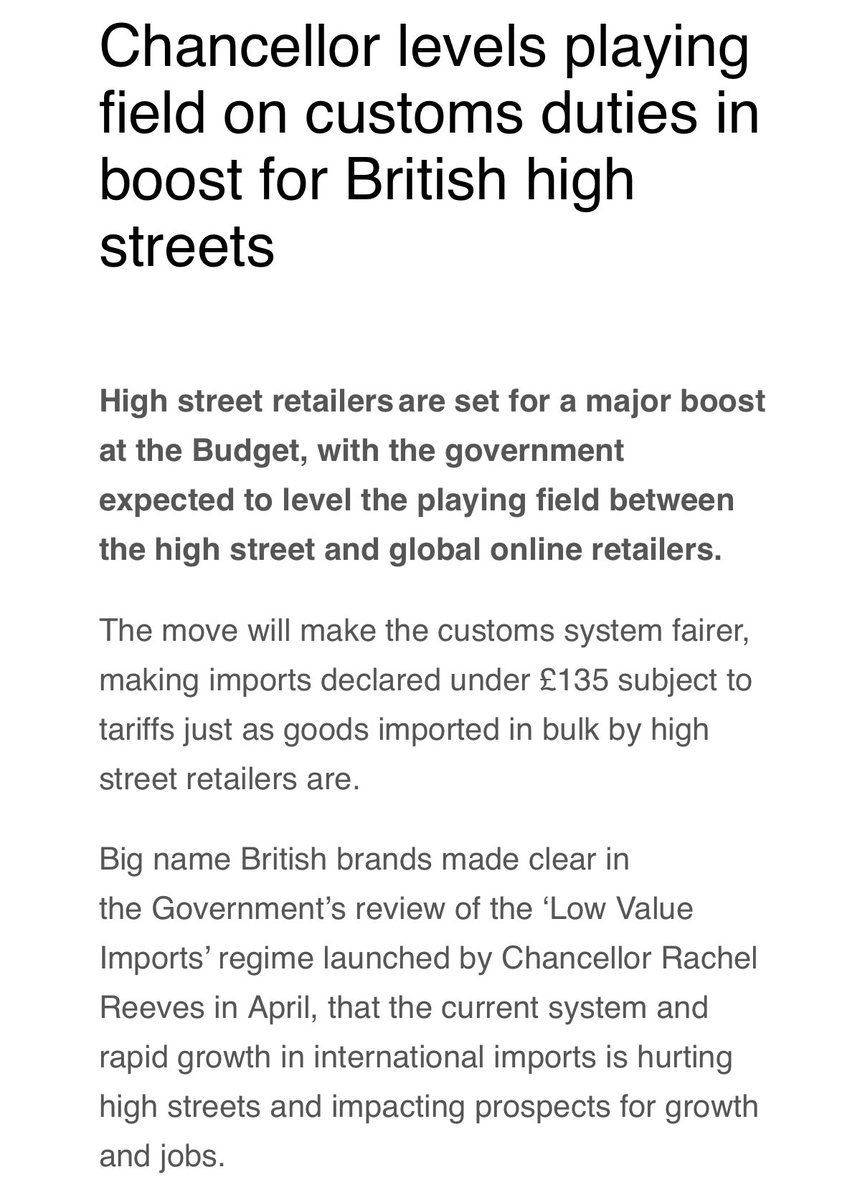🧵
You've probably heard this claim - both from @rishisunak and more recently from @Nigel_Farage 👇
UK has leapfrogged others to become the world's fourth biggest exporter! And all after Brexit!
Unfortunately the reality is somewhat less impressive than this sounds.
Here's why:
You've probably heard this claim - both from @rishisunak and more recently from @Nigel_Farage 👇
UK has leapfrogged others to become the world's fourth biggest exporter! And all after Brexit!
Unfortunately the reality is somewhat less impressive than this sounds.
Here's why:

First thing to say is that the bare bones of the claim are certainly true.
Between 2021 and 2022 the UK did indeed rise from 7th in the league table of the world's biggest exporters (counting both goods and services) to 4th.
We'll get to why this happened in a moment. But still
Between 2021 and 2022 the UK did indeed rise from 7th in the league table of the world's biggest exporters (counting both goods and services) to 4th.
We'll get to why this happened in a moment. But still

However here's some (very) important context.
It's not like the UK has only JUST hit fourth spot. In fact, it was in 4th place in 2020. And in 2015, 2014 and 2013.
Actually if you look at the modal average of our position in the past decade it was... fourth.
It's not like the UK has only JUST hit fourth spot. In fact, it was in 4th place in 2020. And in 2015, 2014 and 2013.
Actually if you look at the modal average of our position in the past decade it was... fourth.

So that "leapfrogging" notion is wrong.
If anything the outlier here was 2021, where we dropped to the lowest position we'd EVER been in, going back two decades or so.
Raising the question: what happened? Forget leapfrogging - why did we drop down?
Brexit? Covid? Something else?
If anything the outlier here was 2021, where we dropped to the lowest position we'd EVER been in, going back two decades or so.
Raising the question: what happened? Forget leapfrogging - why did we drop down?
Brexit? Covid? Something else?

Having looked into this, I can tell you at least part of the answer comes back to gold.
If u follow me you've prob already heard this, but UK trade figs are MASSIVELY distorted by flows of gold into & out of London vaults.
Film I made about this years ago
If u follow me you've prob already heard this, but UK trade figs are MASSIVELY distorted by flows of gold into & out of London vaults.
Film I made about this years ago
And gold flows have been a very big distortionary factor in UK trade post 2019. Just LOOK at how much of the total UK export figure since then has been gold: a LOT.
Even tho we don't mine sizeable amounts of gold, it's routinely been one of our biggest "exports" in recent years
Even tho we don't mine sizeable amounts of gold, it's routinely been one of our biggest "exports" in recent years

Now, nearly every trade statistician agrees you should exclude gold from trade stats. After all, this is more of a financial transaction than a traded good.
The @ONS already excludes gold from most of its figs. More on this here: blog.ons.gov.uk/2020/02/10/its…
The @ONS already excludes gold from most of its figs. More on this here: blog.ons.gov.uk/2020/02/10/its…
But those UNCTAD trade league tables don't, as far as I can tell, exclude gold.
And this is relevant. Because look: in 2021 UK gold exports dropped a LOT. In 2022 they bounced back to the highest level ever, boosting TOTAL UK exports by a whopping 4% (that's MASSIVE).
And this is relevant. Because look: in 2021 UK gold exports dropped a LOT. In 2022 they bounced back to the highest level ever, boosting TOTAL UK exports by a whopping 4% (that's MASSIVE).

Raising the question, what does our trade picture look like if you EXCLUDE gold.
Are we still in fourth place?
In short: no.
Look, ex gold, our ranking would have been 6th last year. Not 4th.
In fact we wouldn't have hit 6th since 2015. Which is consistent with other datapoints.
Are we still in fourth place?
In short: no.
Look, ex gold, our ranking would have been 6th last year. Not 4th.
In fact we wouldn't have hit 6th since 2015. Which is consistent with other datapoints.

This is not to say UK is not a trading powerhouse.
We are esp in services.
But our overall position, once you adjust for gold, does seem to have deteriorated recently.
Why? Poss Brexit. Poss our deindustrialisation.
But def more nuanced than @RishiSunak wld have you believe.
We are esp in services.
But our overall position, once you adjust for gold, does seem to have deteriorated recently.
Why? Poss Brexit. Poss our deindustrialisation.
But def more nuanced than @RishiSunak wld have you believe.
Btw plenty more on recent trade stats, and a bit more about gold, in this old thread 👇
And @BBCMoreOrLess also subsequently covered this in a great episode last month
And @BBCMoreOrLess also subsequently covered this in a great episode last month
https://twitter.com/edconwaysky/status/1786002764973097284
BONUS CHART:
A few people have asked me about how UK's ranking specifically for goods trade has evolved vs services trade.
Well here you go👇
Quite striking actually.
Good exports ranking: down, down, down. Falling long before Brexit, incidentally.
Services - still flying high.
A few people have asked me about how UK's ranking specifically for goods trade has evolved vs services trade.
Well here you go👇
Quite striking actually.
Good exports ranking: down, down, down. Falling long before Brexit, incidentally.
Services - still flying high.

• • •
Missing some Tweet in this thread? You can try to
force a refresh














